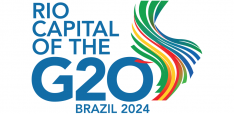Part One: Ummah, Bangladesh and Transnational Islamism

In the first of a three-part series, Mubashar Hasan explains how Islamists manipulate a religious concept to justify transnational terrorism, and to mount challenges to Western ideas of state and citizenship.
Following the bloody massacre of foreigners in Bangladesh’s diplomatic zone allegedly carried out by some Bangladeshi members of Islamic State (IS), a plethora of writers and analysts have focused upon three major issues: (a) the evolution of IS tactics and the expansion of terrorism in Bangladesh; (b) the lack of democratic space in the country and its relationship to terrorism; and (c) Bangladesh’s under-preparedness for combating terrorism.
These discussions are important but all together they reinforce a traditional Western understanding of the world where terrorism can be treated as merely a security issue for sovereign states to deal with. Yet the particular nature of terrorism in Bangladesh is an open challenge to the Western world system, the system which divides the globe into independent states and nations. The motivation for the modern jihadi who carries out attacks, such as those seen recently in Bangladesh, is a non-Western Islamic concept – the Ummah. The Ummah is the religious global brotherhood of Muslims, a concept which directly competes with and undermines the concept of independent, sovereign states.
Following the recent attack on the diplomatic zone, IS released a video showing three young Bangladeshi men purportedly standing in IS territory speaking against what they claimed were brutal Western foreign policies towards Muslims countries. They justified the heinous Dhaka attack as an act of revenge upon what they say is a Western assault on the Muslim ummah.
So, what is the Ummah?
Ummah and Transnational Islamism
Ummah is a religious concept embedded in Islam. The theological concept of the ummah is deeply rooted in the Quran (it is mentioned sixty-four times in the Quran) and is part of the legacy of Prophet Muhammad.
To Muslims, the Quran is the revelation of Allah’s guidelines to humankind made via his messenger, Prophet Muhammad. In other words, for Muslims the theological root of the ummah derives from Allah and his messenger, Prophet Muhammad, making it an inalienable part of Islam.
Therefore, unlike traditional International Relations (IR) concepts, ummah, when translated into politics does not offer a secular narrative. The ummah’s history, unlike IR, is embedded in Islamic history.
The word ummah is Arabic, derived from the root word ‘um’ meaning ‘mother’. The Muslim ummah refers to ‘a global Islamic community bound by faith.’ Faith is a bond which, in the Islamic context, is considered more significant than blood or nationality. Even though Muslims reside in different states and officially have a variety of citizenships, many Muslims do not see any clear separation between their religious and political identities – their identity is ethno-religious rather than purely ethnic. For Muslims, the Islamic idea of the ummah is arguably as powerful, if not more powerful, than many concepts embedded in Western liberalism, including loyalty to the state, because it taps into Muslim’s universalist Islamic identity and suggests a broader community beyond states and time periods. The ummah is not just an imagined community but contains within it the idea that Muslims should be governed by Muslims where practical, and that Islam is a system of law rather than a mere brotherhood.
Within this paradigm, expressing one’s identity necessitates consenting to a form of global politics that encourages political Islam at national, international and transnational levels. How can one identify as a Muslim without identifying with the ummah? How can one identify with the ummah and deny its political expression? These questions bring challenges for national identities and state citizenship because the politicization of the ummah undermines the supremacy of the state as the object of citizen loyalty.
The implications of this Islamic psychology are evident in modern history. Many Islamist thinkers, Islamist revivalist movements, and terrorist outfits have used this religious concept to justify attacks against foreigners, their own state, or to rally against the perceived imposition of ‘Western’ or secular values at home.
A series of violent events illustrate how some Muslims have become fiercely defensive about their identity. For instance, there was the angry riots against the film ‘The Innocence of Muslims’ in 2012 which claimed lives of at least 50 people, including a U.S. diplomat in Libya; the Iranian revolution in 1979; the Taliban’s “holy Jihad” against the West; the rise of Hizbullah in Lebanon; the Hizbut Tahrir Movement in UK, Australia and many other parts of the world; the car bomb attack on the World Trade Centre complex in Manhattan in 1993; the 9/11 attacks in New York; the 7/7 bombing of London trains and buses. Such attacks and transnational movement illustrate the political significance of the Ummah for Islamists because the attackers and followers of transnational Islamist movements were claiming their primary loyalty was towards the broader Muslim community. They had a “Muslim” identity which came ahead of any state-based identity.
In short, the idea of a Ummah is being used to form the bedrock of transnational Islamist politics and justify violent ideology of transnational terrorists. The deplorable attack on foreigners in Dhaka was a manifestation of this use, with the Ummah deployed to reinforce the notion of a clash between Islam and West. In part-two we will further explore this emerging practice.
Mubashar Hasan, PhD, teaches at a university in Bangladesh. He can be reached at mhasan21981 [@] gmail.com
Photo credit: fazlay2012 via Foter.com / CC BY


